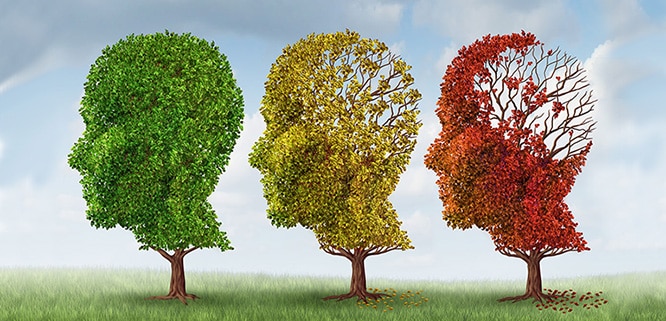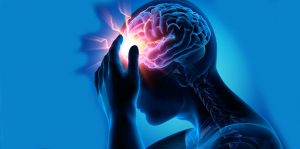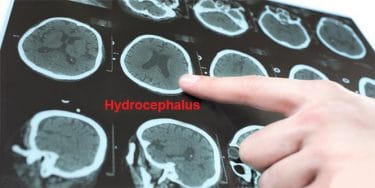Alzheimer’s disease is a type of dementia that causes memory, thinking and behavior problems. Alzheimer’s disease generally develops after 60 years of age; symptoms gradually progress, worsens over time and the patient becomes unable to perform daily tasks after a certain amount of time. It is the most common reasons of dementia in elderly people and it’s becoming increasingly frequent. Dementia becomes more common with age; however, it is not a normal part of aging. Genetics, lifestyle and environmental factors are among the known causes of Alzheimer’s disease; and abnormal amounts of protein forming inside brain cells is also considered to be an important factor. Today, many methods are recommended for protection against Alzheimer’s. There is no cure for Alzheimer’s disease; however, certain drugs can significantly slow progression of disease.
Table of Contents
Alzheimer’s disease definition
Alzheimer’s disease starts with abnormal accumulation of beta-amyloid protein in nerve cells of the brain and brain fails to clear away this accumulation. This protein accumulation and consequent plaque disrupt the connections between the cells; nerve cells start dying and brain functions become deteriorated. This is the most common type of dementia in elderly people and causes extreme memory loss. In time, patients become unable to perform their daily tasks.
Onset of Alzheimer’s is slow; parts of the brain that control thinking, memory and speaking are damaged first. Alzheimer’s patients can have difficulty to remember the recent past, and may even forget the names of the people who are close to them.
Patients can have problems with speaking, reading or writing and may forget to brush their teeth or comb their hair. They can become anxious or aggressive later on or they may get away from home. Eventually, the complete nursing neediness period starts. Alzheimer’s is generally an advanced age disease; risk increases with age and people who have Alzheimer’s disease in the family are under greater risk.
What causes Alzheimer’s?
In Alzheimer’s disease, brain damage starts way before memory and cognitive problems are detected and this process may take longer than ten years. In addition to age, other factors like the damage in the brain, health, environmental and lifestyle plays an important role in progression and the course of the disease depends on many risk factors.
Advanced age is the most important known risk factor of Alzheimer’s disease. The number of people over 65 years of age suffering from the disease is doubled in every five years. Approximately one third of people older than 85 years of suffer from this disease. Age-related changes include shrinking of certain parts of the brain, inflammation, production of unstable molecules called free radicals and disruption of energy generation inside cells.
Alzheimer’s stages
Early stage Alzheimer’s disease
The onset of early stage Alzheimer’s disease cannot be stopped, however, early diagnosis provides the patient with the possibility to live with the disease and have enough time to plan for their future. Patients can function independently at the early stages of the disease. They can still drive, work and maintain their social activities. However, they may forget familiar words or fail to remember the locations of daily objects.
Mid stage Alzheimer’s disease
During the mid stage of Alzheimer’s disease, patients start having difficulty in completing tasks like paying bills; however, they still remember important details about their lives. Mid stage of Alzheimer’s disease is the longest stage and lasts for many years. As the disease progresses, there will be stages where patient care is harder.
You may notice an Alzheimer’s patient speaking confusingly, rejecting taking a shower, being angry or upset, and acting differently than usual. At this stage, symptoms have become observable by others. Generally, Alzheimer’s patients at this stage cannot self-sustain their lives and they need support. For example, they may require assistance for feeding, bathing, wearing clothes or using toilet.
Late stage Alzheimer’s disease
Taking the decision to provide nursing care for the patient is the most difficult process faced by the families. The situation is not only increasingly troublesome for the patient but also their caretakers, friends and family. In last stage of this disease, individuals lose their ability to respond their environment, speak, and eventually ability to control movement.
They may articulate repeating words or sentences but communication becomes difficult. As memory and cognitive skills worsen, important personality changes also take place.
Hallucinations and delusions can become regular; however, they worsen as the disease progresses. Patients begin to suspect people around them and sometimes they may resort to violence. In later stages of the disease, patients require full-time care and assistance for toilet needs, eating, and handling.
Alzheimer’s symptoms
Symptoms of Alzheimer’s disease show up slowly; sometimes they can be confused with other problems and disease may not be noticed at the beginning. Progression rate of symptoms is different for each individual and it is impossible to estimate the exact rate of progression. In some people, infections and some drugs may worsen the symptoms.
All Alzheimer’s patients and everybody with rapidly worsening symptoms must see a doctor; this is the only way to get the disease under control.
Early signs of alzheimer’s
- The main symptom of Alzheimer’s disease is memory loss.
- Difficulty in remembering the names of recently met people
- Difficulty in fulfilling the tasks in social environment or at job
- Forgetting what is read
- Difficulty in planning or complete performance of a task
- Forgetting recent conversations and event or putting objects in wrong places
- Inability to remember the names of locations and objects or find the correct word
- Asking the same question several time, repeating themselves frequently
- Difficulty in decision making
- Difficulty in trying new things and becoming more hesitant
- Increased anxiety or temper, or frequently changing mood
Mid stage symptoms of Alzheimer’s
- Unawareness, forgetting one’s own personal past
- Confusion, frequently getting lost, not knowing the time of the day
- Not remembering their own address, phone number or their school
- Obsessive, repetitive or impulsive behaviors
- Delusions (belief in wrong information) or paranoid feelings, excessive sense of suspicion
- Problems with speaking or language
- Changes in sleeping routine such as sleeping during daytime and being anxious at night time
- Increased mood changes, depression, anxiety, temper or excessive excitement
- Need for assistance in selecting clothes suitable for the seasons
- Moodiness or regression in socially or mentally challenging situations
- Inability to assess distances, difficulty in completing spatial tasks
- Hallucinations, confusing reality and imaginary
- Problems with bladder and intestinal control in some people
Late stage symptoms of Alzheimer’s disease
- Need for 24-hour assistance for daily activities and personal care
- Severely reduced abilities in terms of walking, sitting, swallowing and physical skills
- Difficulty in changing position or inability to move without assistance
- Significant weight loss or in some patients excessive eating
- Urinary incontinence and increased loss of speech
- Loss of awareness of the surrounding in addition to the experiences of the recent past
Diagnosis of Alzheimer’s disease
Some cognitive and neuropsychological tests are performed for the diagnosis of Alzheimer’s disease. These tests measure memory, problem-solving, attention, counting, language skills and other abilities related to mental functionality.
Blood and urine tests
These tests help finding or eliminating the potential causes of the symptoms
Brain scanning tests
These tests can identify tumors or other problems that may cause dementia. Moreover, scans determine the changes in the structure and function of the brain The most common scans are:
- CT (Computed tomography): X-ray tomography to produce images of the brain and other organs.
- MRI (Magnetic resonance imaging): Imaging method using magnetic fields and radio waves to produce detailed images of body structures including tissues, organs, bones and nerves
- PET (Positron emission tomography): Tomography using radiation to produce images ofbrain activity.
Psychiatric evaluation
This evaluation will help to determine whether depression or another mental problem causes the symptoms of the patient.
Alzheimer’s treatment
Today, there is no cure for Alzheimer’s disease. Current drug therapies reduce disease symptoms and slow the progression of the disease. It is crucial to help the patient for handling the daily life.
Alzheimer’s disease medications
Cholinesterase inhibitor drugs are prescribed for early and mid-stage Alzheimer’s disease. These drugs help to reduce some symptoms and to control behavioral problems. Doctors generally start the treatment with low doses of medication and they increase the dose gradually depending on how well the patient tolerates the medication.
There is evidence that some patients can benefit from high doses of Cholinesterase inhibitors. However, side effects will increase with the dose.
A drug known as Namenda (memantin) is an NMDA antagonist and prescribed for the treatment of moderate and severe Alzheimer’s disease. The main effect of this drug is to reduce the symptoms and this may help some patients to sustain their daily tasks longer than without the medication.
For example, Namenda may help patients to maintain their ability to take a shower independently for a few months; this is an advantage both for patients and their caretakers. US Food and Drug Administration have also approved Aricept and Namzaric, a combination of Namenda and Aricept, for the treatment of moderate and severe Alzheimer’s disease. Glutamate causes brain cell death when produced excessively.
As NMDA antagonists act very differently than Cholinesterase inhibitors, both drug types can be prescribed in combination.
The patient must be monitored closely when the medication starts. All these drugs have side effects including nausea, vomiting, diarrhea and loss of appetite. It is important to immediately notify the doctor about unexpected symptoms. Doctor’s instructions must be followed when taking a medication, including vitamins and herbal supplements. Moreover, you must inform your doctor before adding or changing any medication.
How do Alzheimer’s patients die?
Alzheimer’s is an incurable degenerative disease and causes the death of brain cells. It can last for 15-20 years; however, the late stage usually takes 2 years. In time, Alzheimer’s patients lose their various natural reflexes that keep us alive, such as swallowing, coughing and breathing.
The most common cause of death in Alzheimer’s patients is aspiration pneumonia and it may lead to paralysis. This situation occurs when the patient has lost their swallowing and chewing abilities and aspirates the food while breathing.
Alzheimer’s prevention
Protect your heart
Cardiovascular diseases are associated with Alzheimer’s disease and vascular dementia risks. By following below cardiovascular health recommendations, you can protect your heart and yourself from Alzheimer’s.
- Quit smoking
- Do not use excess amount of alcohol
- Every day maintain a healthy, Mediterranean type balanced diet containing fruits and vegetables.
- Do at least 150 minutes (2 hours 30 minutes) of medium intensity exercise (cycling or fast paced walking) each week; this protect both your physical and mental health
- Have your blood pressure checked, protect yourself from hypertension, and receive treatment if you have
- Protect yourself from diabetes; if you are diabetic, control your condition using medication.
Stay mentally active
Alzheimer’s disease is less in people who have been mentally, physically and socially active throughout their lives. There are many scientific studies suggesting that Alzheimer’s disease is less frequent among people who like various activities and hobbies. You can do these to reduce the risk of Alzheimer’s disease:
- Read plenty of books and newspaper
- Write or draw for pleasure
- Learn a foreign language; each time learning a new language decreases your Alzheimer’s risk by 50%
- Be interested in music and play an instrument
- Participate in adult education and skill courses
- Play group games like tennis, golf or bowling
- Do sports like swimming and walking
Dementia vs alzheimer’s
Alzheimer’s disease is the most common type of dementia (loss of memory). Seventy percent of all dementia patients have Alzheimer’s disease. As the disease progresses, patients experience gradually increasing problems with their daily skills. On the other hand, loss of memory is a condition that can occur in any age due to any number of reasons. Not every loss of memory incident means dementia or Alzheimer’s.
Recommendations for Alzheimer’s patients
Cognitive health is thinking, learning and remembering skill. In order for Alzheimer’s patients to maintain their cognitive skills as long as possible, it is crucial for them to sustain their daily tasks and be busy with activities they like. Patients should not attend to challenging and complex tasks. Recommendations for Alzheimer’s patients:
- Do not hesitate to asking for and accepting help
- Cooperate with your doctor
- Do not forget that there are thousands of other people with Alzheimer’s disease, you are not alone
- Maintain good nutrition
- Walk a lot, go for hiking in fresh air if possible
- Dance, have fun
- Listen to music, if you know play an instrument
- Read books and newspaper (if the patients cannot read by themselves, other can read to them)
- Watch television, movies, and records of important events like weddings and parties
- It will be helpful for the patient to attend to traditional family meetings during national or religious holidays
- Spend time with children or a domestic pet if possible
- Try to participate in collective games (bingo, domino, backgammon, card games etc.)
- Draw, look at photo albums.
- Spend time with garden works
- Make an object collection and organize it
- Sing a song in a foreign language. For more:>>> Alzheimer’s disease




